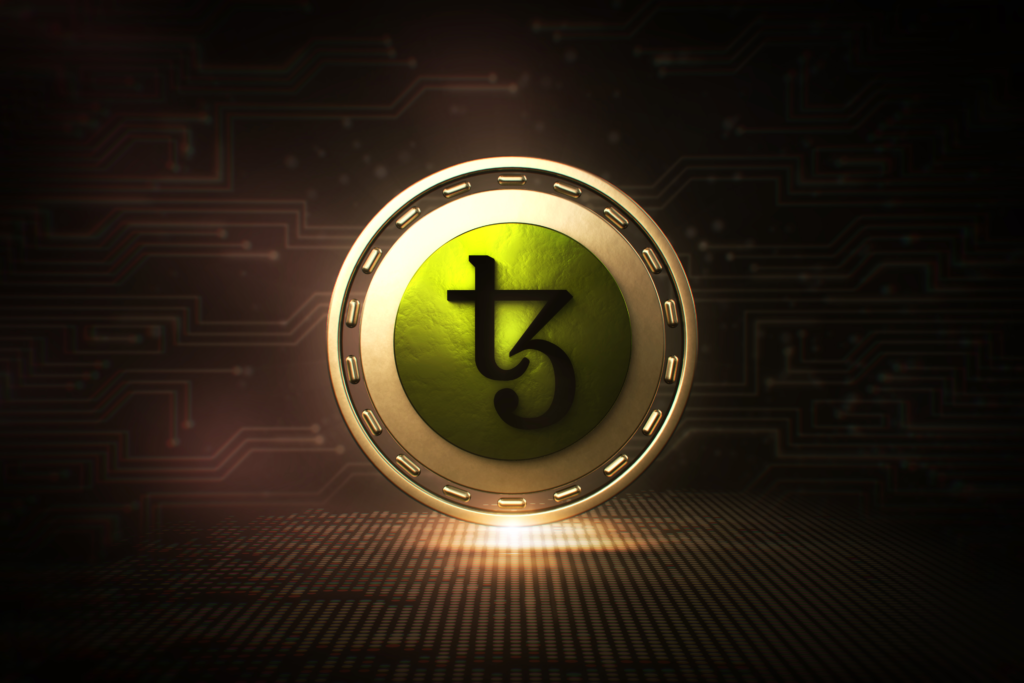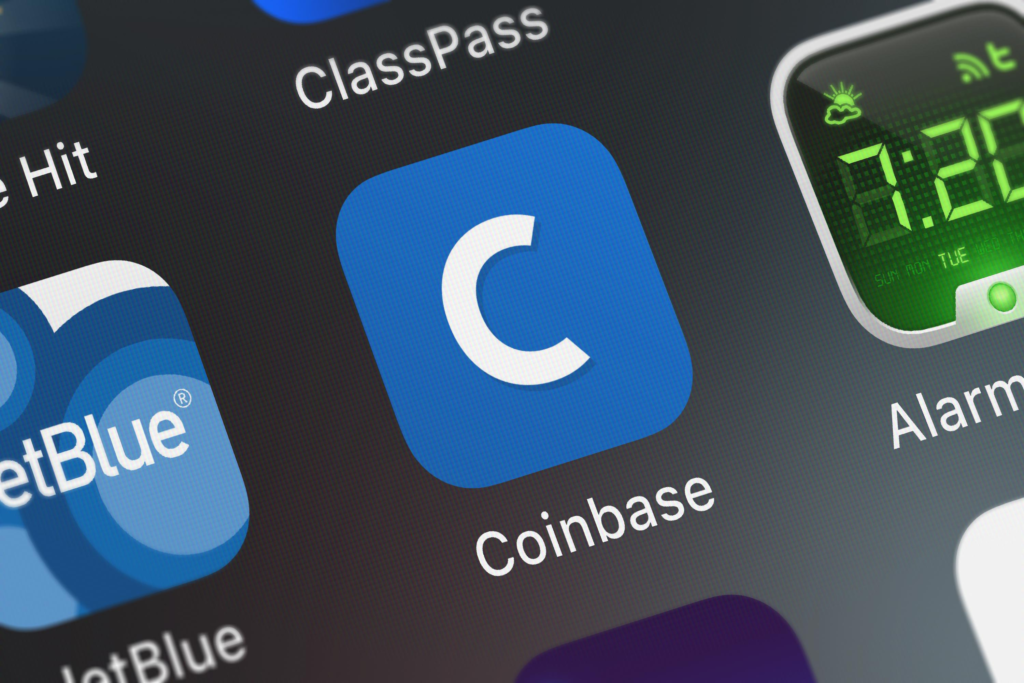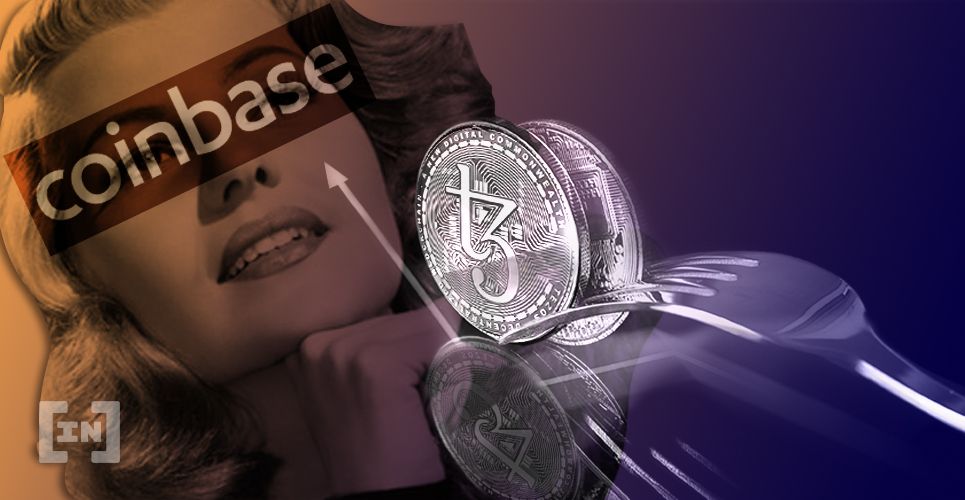Wednesday saw Coinbase announce the introduction of staking rewards for eligible US customers who hold Tezos (XTZ) on the platform. This comes as a new means for users to earn cryptocurrency, but also as a lucrative revenue stream for the company.
In an official blog post, Product Manager Rhea Kaw explained that as of today, US customers (except those in New York and Hawaii) could begin staking Tezos held on Coinbase to earn a passive income for helping to secure the blockchain. This comes after a similar offer was extended earlier this year to Coinbase Custody clients.
What Are the Benefits of Staking?
With today’s launch, Coinbase is offering an easy, secure way for anyone to actively participate in the Tezos network. While it’s possible to stake Tezos on your own or via a delegated staking service, it can be confusing, complicated, and even risky with regard to the security of your staked Tezos. We’re changing that with staking rewards on Coinbase.In general, staking is the process of committing some or all of your coins to help secure the underlying network and is the backbone of all Proof of Stake coins. It is an increasingly common structure for new cryptocurrencies, and even Ethereum is planning to switch to this model in time.
 For the customer, the benefit is that you are helping contribute to the network and, more importantly, earning rewards for doing so. Unlike mining, staking requires no fancy equipment and doesn’t use excessive electricity. This makes it a rather attractive option for those who plan to “hodl” for the long term anyway. The downside is that while staked, coins cannot be moved or spent, but un-staking should be available to customers at any time.
There are regulatory benefits for customers as well. Staking rewards are not clearly regulated at this time by the SEC, but that could change in the coming years. Coinbase, however, seems to have found a way to “buffer” their clients from these concerns by using a unique model. Instead of staking the client’s Tezos directly, Coinbase uses its reserves for staking on behalf of their customers, then giving back the earned profits as a reward. This also keeps a customer’s actual deposits offline, adding another layer of security. The arrangement is the same as what was laid out for Coinbase Custody clients several months ago.
For the customer, the benefit is that you are helping contribute to the network and, more importantly, earning rewards for doing so. Unlike mining, staking requires no fancy equipment and doesn’t use excessive electricity. This makes it a rather attractive option for those who plan to “hodl” for the long term anyway. The downside is that while staked, coins cannot be moved or spent, but un-staking should be available to customers at any time.
There are regulatory benefits for customers as well. Staking rewards are not clearly regulated at this time by the SEC, but that could change in the coming years. Coinbase, however, seems to have found a way to “buffer” their clients from these concerns by using a unique model. Instead of staking the client’s Tezos directly, Coinbase uses its reserves for staking on behalf of their customers, then giving back the earned profits as a reward. This also keeps a customer’s actual deposits offline, adding another layer of security. The arrangement is the same as what was laid out for Coinbase Custody clients several months ago.
What Does Coinbase Get Out of This?
This move isn’t entirely altruistic, however. Coinbase is hoping to open up a new revenue stream with this offer, as it is planning to take a percentage of the rewards as a fee for the service. This means a user stands to make more by staking their Tezos themselves but then has to assume the risks and technical considerations. With Coinbase, they handle the intricate details, security issues, and regulatory concerns, but for a price. As is outlined in a recent Wired article on the subject, “Tezos offers nearly 8 percent rewards to those who stake their coins directly. Coinbase plans to take a hefty percentage off the top, leaving users with a roughly 5 percent annual return that pays out every three days.” Likely, many will opt-in to the cost of convenience, especially since earning returns will take almost no work or risk on their part. In time, Coinbase will more than likely roll out this option for other Proof of Stake coins. If popular, earning rewards by staking could become a significant part of a future cryptocurrency-based global economy, and this will be where it began.
Likely, many will opt-in to the cost of convenience, especially since earning returns will take almost no work or risk on their part. In time, Coinbase will more than likely roll out this option for other Proof of Stake coins. If popular, earning rewards by staking could become a significant part of a future cryptocurrency-based global economy, and this will be where it began.
Did you know you can trade sign-up to trade Bitcoin and many leading altcoins with a multiplier of up to 100x on a safe and secure exchange with the lowest fees — with only an email address? Well, now you do! Click here to get started on StormGain!
Top crypto platforms in the US
Disclaimer
In adherence to the Trust Project guidelines, BeInCrypto is committed to unbiased, transparent reporting. This news article aims to provide accurate, timely information. However, readers are advised to verify facts independently and consult with a professional before making any decisions based on this content. Please note that our Terms and Conditions, Privacy Policy, and Disclaimers have been updated.

David Borman
David is a freelance writer with a specialty in technology and cryptocurrency. He has been writing his whole life, but professionally since 2018 and hopes to stay in the field forever. In addition to cryptocurrency, David follows politics, current events and financial news.
David is a freelance writer with a specialty in technology and cryptocurrency. He has been writing his whole life, but professionally since 2018 and hopes to stay in the field forever. In addition to cryptocurrency, David follows politics, current events and financial news.
READ FULL BIO
Sponsored
Sponsored

